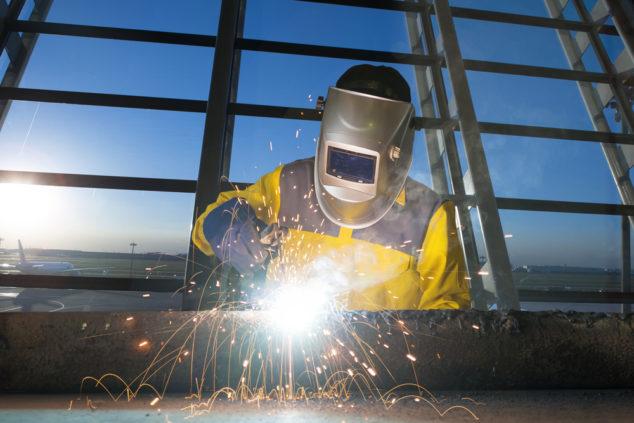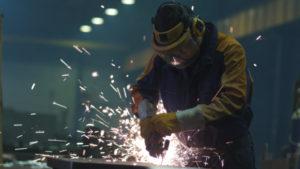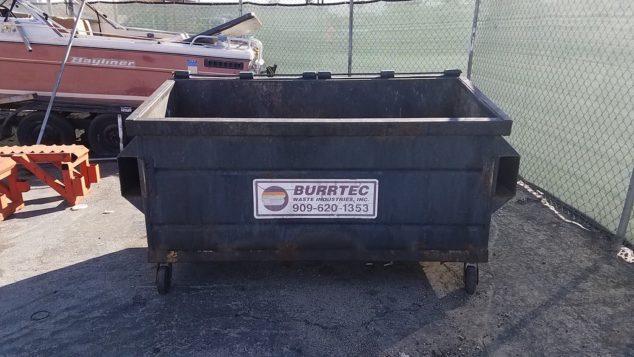For many people, the first thing that comes to mind whenever they hear “welding” are individuals wearing heavy, rust-coated overalls. Other markers of welders might include: donning barely functional helmets, eye protectors, stray sparks flying in all directions, and handling blow torches that could singe one’s skin at the slightest opportunity. Indeed, these describe the safety condition around blue-collar jobs such as welding.
Regardless of the amount of stigma attached to welding, it has evolved over the years. Today, welding involves learning a lot of skills and processes, like MIG welding techniques. For the individual, welding can be a very useful skill to learn.
Let’s explore some of the reasons to learn welding in this article:
1, No Tertiary Education or Prior Knowledge Is Needed
Welding is a skill for everyone because it doesn’t require tertiary academic qualifications to learn and no prior knowledge. In most cases, secondary education and the basic ability to comprehend would suffice. This is a good reason why anyone out there should try their hands out on welding.
You can choose to either self learn how to weld or sign up with an instructor to teach you. The priority is to develop your skills in the welding vocation.
You’ll also find out that welding is a vocation that requires an intricate understanding of the different types of metal alloys, techniques, and heating methods. This knowledge can be taken up by anyone with enough practice.
2, There’s Plenty of Room for Improving One’s Skills
Unlike many other vocations that involve repetitive processes, welding offers you the opportunity to continuously improve your skills. Although there isn’t a need for tertiary education to practice welding, as mentioned above, there are a variety of technologies, processes, and skills to be learned. This makes welding a great vocational skill to learn.
Some of the techniques in welding include:
- Stick Welding: This is the oldest and most straightforward method of welding. It involves using a flux coated metal, an electrode and a stinger – holds the electrode in place. This welding process involves the metal and electrode melting to form a strong weld joint.
- MIG Welding: This is another welding process that you need to learn as a welder. MIG is an acronym for Metal Inert Gas. A more recent name for this welding process is Gas Metal Arc Welding (GMAW)
The inert gas used when it was first created was Argon, which was deemed too expensive. MIG welding techniques are still employed today but with a mixture of Carbon Dioxide, Helium, and Argon gases to achieve the best results.
A short circuit between its arc generated electricity is what facilitates the welding process.
- TIG Welding: The techniques of TIG (Tungsten Inert Gas) are similar to MIG welding as it also uses inert gases. This welding process is achieved by the reaction between the inert gas and weld rods.
3, It’s A Great Hobby to Learn
Hobbies are skills put to use at leisure times. In this case, welding can also be a hobby.
While welding can be a body exerting endeavor, it can create a great feeling of purpose for people during their leisure time. The screeching sounds of a welding gun against two pieces of metal and the flying sparks are enough sources of adrenaline to get you going. Some people even refer to welding as therapeutic. If it works for you, then welding is a great hobby to pick up.
Taking welding as a hobby will also save you some repair costs in the long run. Basic welding skills are enough to carry out repairs on different metal objects around your home, such as cars, stanchions, tanks, and furniture.
4, Allows For Creativity
Welding spurs creativity. If you have lacked a way to bring to life some of the creative ideas you have, welding provides an easy way to do so.
You can start simply by welding two pieces of metal together, and with each weld joint and metal piece affixed, it can blow up into a piece of art that’s worth admiring.
Conclusion
Learning how to weld comes with its many benefits. However, as a vocation, attaining a good level of expertise requires time and commitment.
There’s always new knowledge and skills to develop in any chosen field, and welding is no different. Take note that delving into the world of welding with dedication will enable you to learn the ropes faster.










